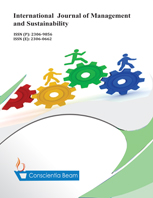Management in Public Utility Companies in Ghana: An Appraisal of Ghana Water Company Limited
DOI:
https://doi.org/10.18488/journal.11/2014.3.8/11.8.500.516Abstract
Urban water provision system in Ghana covers 70 percent of the resident population but it is estimated that only 40 per cent of residents connected to the supply system have regular supplies. The Ghana Water Company Limited (GWCL) which is responsible for production, distribution of potable water, billing and revenue collection from consumers is beset with many challenges. It faces several management challenges manifested in poor service delivery in terms of quantity and quality, poor cost recovery, weak capacity for operation and maintenance and poor financial management. This state of affairs has compelled the Government of Ghana to initiate reforms of the water sector including reengineering of the systems and possible Private Sector Participation in urban water provision. Presently, government has started physical expansion works in the water sector of many cities in Ghana. But not much has been done on the management system and its effect on water provision. The contention is that without effective management the expansion and reengineering works will not have sustainable effect on urban water provision. Given this scenario, Cape Coast, capital of Central region was chosen as case study on the management dimension of urban water provision. The institutional management assessment revealed that the GWCL as a quasi-state institution has limited autonomy for effective operation. This has culminated in poor performance and negative public image. The staff of the company admitted its poor service delivery and financial management. They are of the opinion that public-private partnership investment would improve the situation. However, consumers are unwilling to accept private investors’ participation in water provision due to the general perception that partnership will increase water tariffs.

